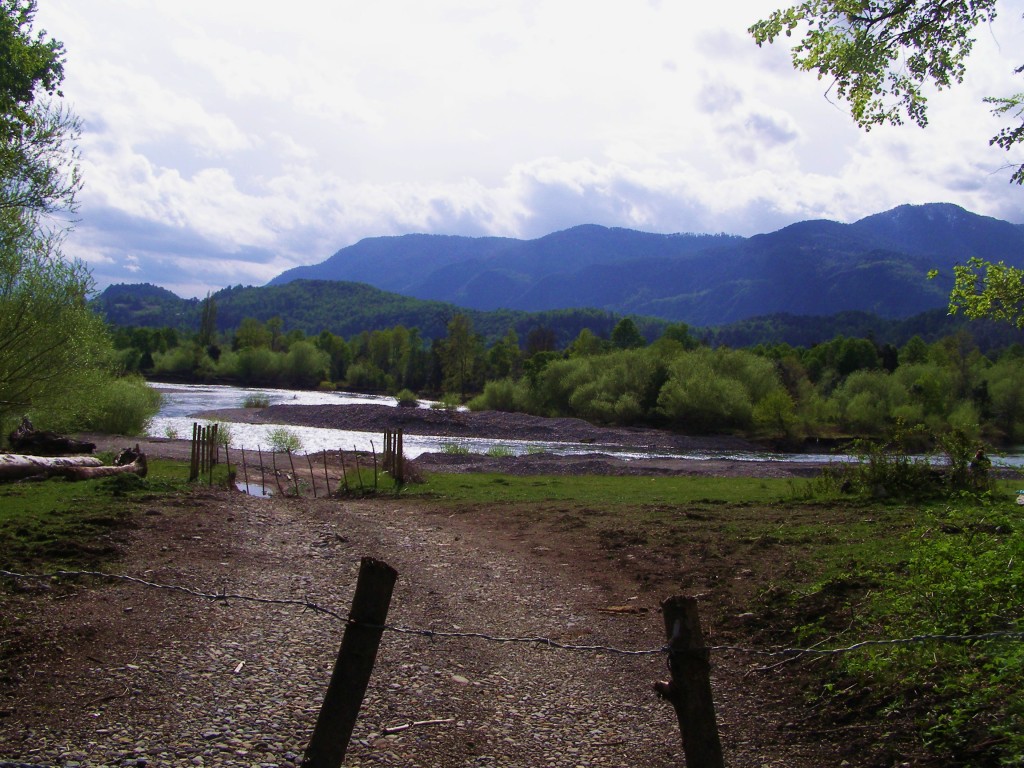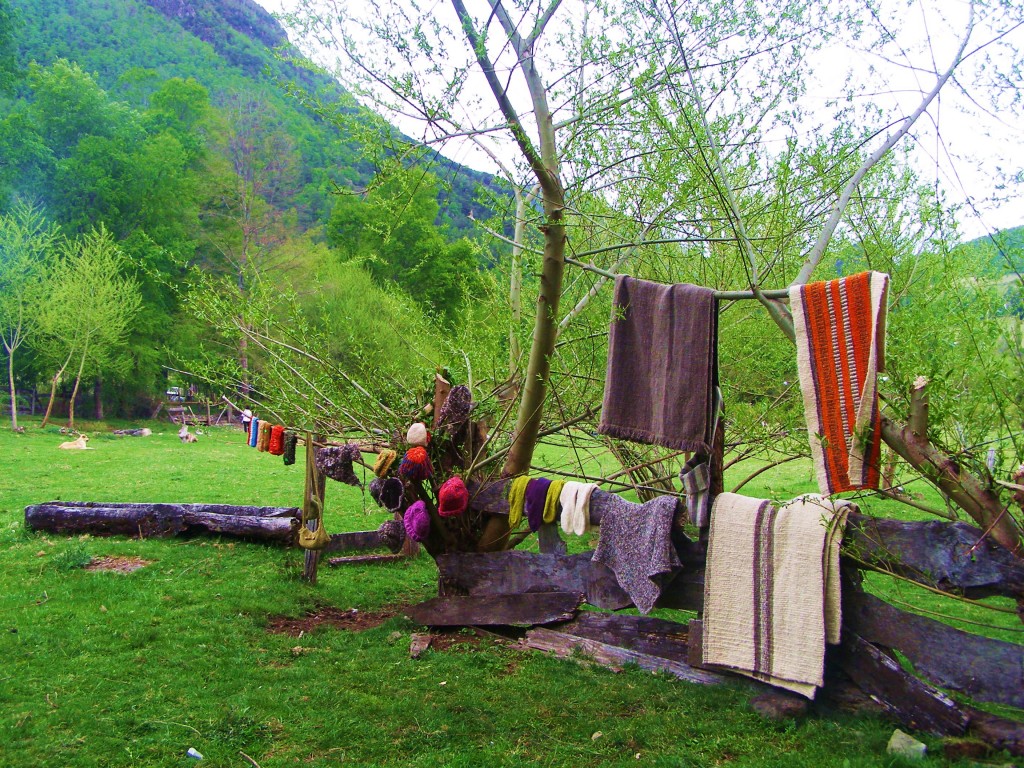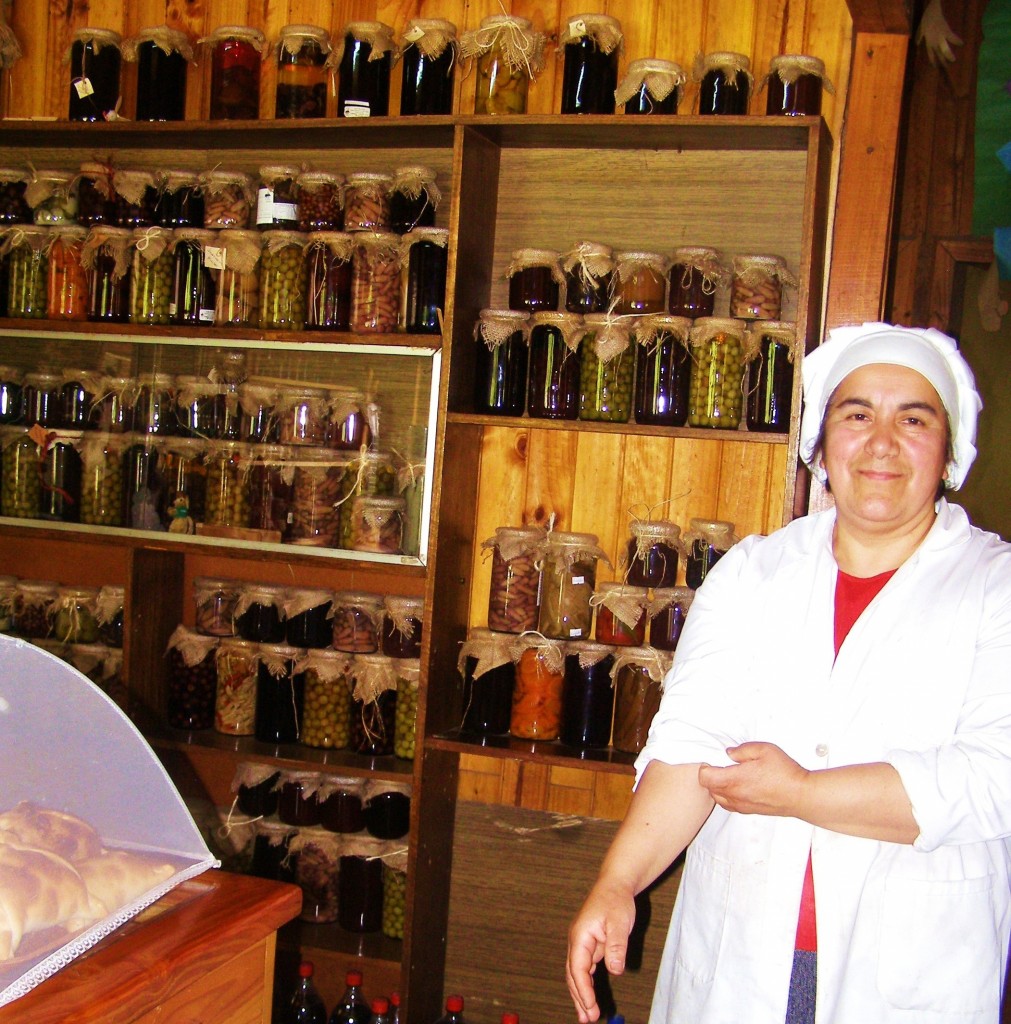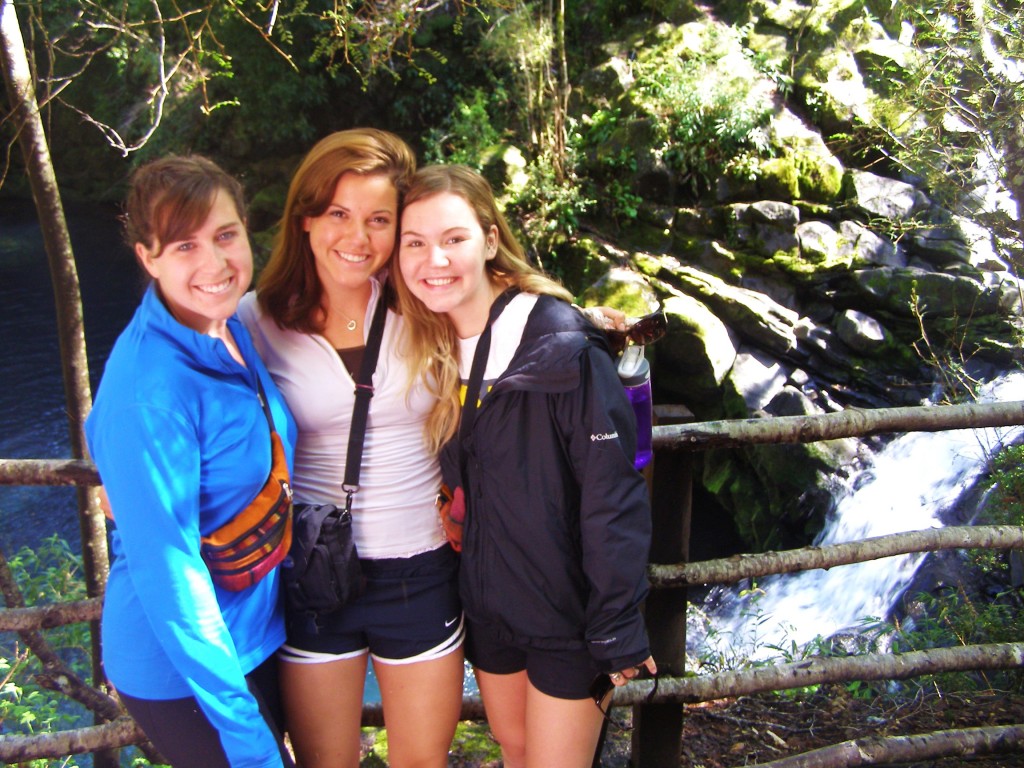
Mapuche babies are strapped onto a wooden frame cushioned by wool made to be carried directly on their mothers’ backs. While the mother is cooking or tending to other household duties, the baby is placed near her on the floor in the same toboggan-like contraption. Thus, the baby is always kept close proximity to its mother, creating a strong bond and a straight back.
A Mapuche woman I met recently lamented that this tradition is not carried on. Nowadays, Mapuche children are put in daycare at a young age, as occurs widely throughout the Americas in other indigenous and non-indigenous communities. However, she still tries to carry on this ancient tradition of mother and child always together by taking care of her grandchildren while their mother works.
I was lucky enough to be invited to a Mapuche community near Pucón, Chile for an afternoon, to share a traditional meal on a farm, visit a Mapuche heritage museum, and discuss current issues and past traditions with members of the Mapuche tribe. The farm we went to was stunningly scenic, situated near a wide and winding river with verdantly green mountains in the background. It reminded me of home, especially after being chased by a goose behind the woodshed (I grew up in farm country in Middle-of-nowhere, Northern Minnesota).

We discussed human rights violations involving Chilean anti-terrorism laws that have led to unjust arrests of members of the Mapuche nation; sadly, some of them are under the age of 18. Over thirty Mapuche peoples went on an extremely long hunger strike (approximately 90 days) in protest of these anti-terrorism laws, which allowed the Chilean state to arrest and convict indigenous peoples for minor offenses committed on their own lands. Finally, it seems that the government is enacting some change in these unfair laws. The members of the Mapuche nation I met were not directly involved in this recent strike, but explained that they deeply support the cause, for many of their fellow tribe members are unjustly detained in prison as I write this.
On a lighter note, I also had an unforgettable chat with a kind-hearted and very jolly shopkeeper about canning vegetables. When I mentioned that my mom from “gringolandia” enjoys canning as well, she shared a recipe with me for lavender and honey canned carrots. Nothing is better than making these kinds of personal connections, and I’m incredibly happy that my currently more comfortable grasp of the Spanish language allows for them.

Spending the weekend in a rural area made me realize how much I appreciate the fresh air and the chance to walk around barefoot. Although I’ve thoroughly been enjoying Viña del Mar and Valparaiso, traveling through the Southern Chilean countryside provided a welcome respite from city life.
My study abroad program CIEE had arranged this trip to Pucon, Chile last weekend for our entire group of about 40 students. In addition to spending time with indigenous peoples in the area, I had the chance to go white water rafting, relax in hot springs, and hike around gorgeous waterfalls. Adventure tourism is prolific in this area. And it’s funny, the mossy rocks and giant trees reminded me of my second home in the Pacific Northwest.

With only 50 days left in Chile, I’m trying to fully appreciate my final weeks here despite the sudden inundation of essays, presentations and exams that have made Chilean university more equivalent to UPS standards in its final month. I’m working on a twenty page paper about the history of education of women in Chile in the Nineteenth Century, and the day after that’s due I’m spending the first weekend of November in Cuzco and Machu Picchu, Peru! “Work hard, play hard” is my current motto.
